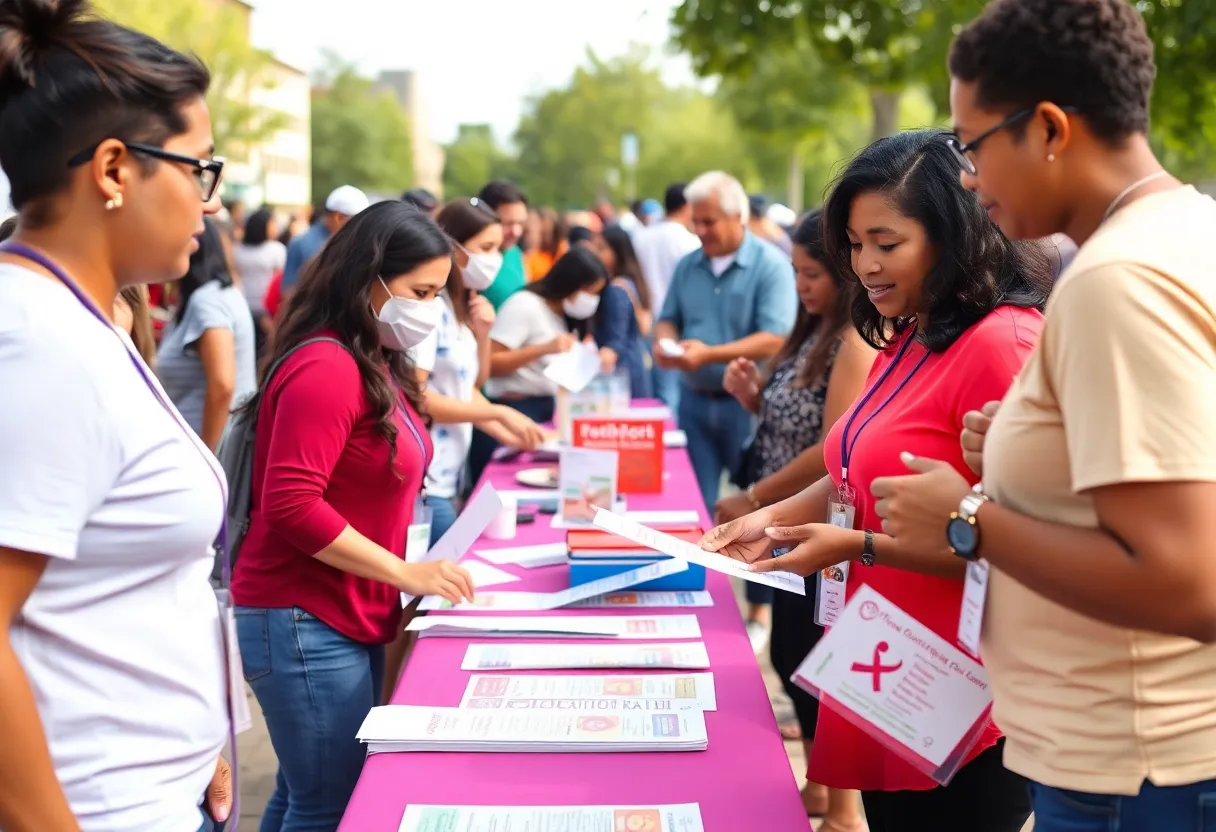News Summary
In response to high colorectal cancer rates, Kentucky CancerLink is providing free screenings to underserved individuals. With March being National Colorectal Cancer Awareness Month, this initiative aims to raise awareness and promote early detection, which is crucial for increasing survival rates. Local health fairs and patient navigation programs have played a vital role in connecting individuals to necessary screenings, highlighting the importance of addressing financial barriers to healthcare access.
Lexington, Kentucky – In a concerted effort to address the alarming rates of colorectal cancer, Kentucky CancerLink is providing lifesaving screenings for underserved individuals. Colorectal cancer is recognized as the second leading cause of cancer-related deaths in the United States, making early detection essential for increasing survival rates. This initiative is particularly important during March, which is designated as National Colorectal Cancer Awareness Month, aimed at raising awareness and promoting screening.
Many individuals, like Roy Bailey, have benefitted from Kentucky CancerLink’s efforts to make screening accessible, regardless of financial barriers. Bailey, who is now 45 years old, faced significant challenges in accessing timely screening services. He delayed his colonoscopy for over a year due to the absence of symptoms and the financial burden of the procedure, compounded by not having health insurance. However, with the assistance of Kentucky CancerLink, he was connected to Carla Washnock, a patient navigator who facilitated his entry into the no-cost screening program.
The connections provided by Kentucky CancerLink and its programs, such as the Kentucky Colon Cancer Screening and Prevention Program, are vital in ensuring that individuals without health insurance or financial means can receive essential screenings. In the past year, over 300 colonoscopies were organized across 85 counties in Kentucky, highlighting the significance of such services in combating the high incidence of cancer within the state.
Despite exhibiting no symptoms at the time, Bailey was diagnosed with colon cancer after his screening allowed for early detection. He subsequently underwent surgery and chemotherapy, emphasizing the crucial role of Kentucky CancerLink in ensuring he received timely care. Many individuals aided by support from patient navigators, like Washnock, have expressed relief at the availability of low-cost options, which have proven critical in accessing necessary health services.
As part of ongoing efforts to improve awareness about colorectal cancer, Baptist Health Lexington is hosting a free community health fair on March 15. The fair aims to educate the public about colorectal cancer and the importance of early detection. Attendees will have access to a physician panel, genetic counseling, nutrition and exercise guidance, and blood pressure checks. The focus of the event is on advocating for screening, especially for individuals starting at age 45 who are not at high risk of the disease.
The significance of these health awareness events is amplified within Kentucky, which has been reported to have the highest overall cancer rate in the United States, as well as the second highest among individuals below 50 years of age. Family encouragement plays a vital role as many attendees leave such events inspired to pursue screenings that can save lives.
In addition to local initiatives, the role of public figures in raising awareness about cancer continues to be emphasized. The experiences shared by individuals like Princess Kate help bring attention to the importance of early detection and screening for colorectal cancer.
Emerging research has also identified environmental factors that may contribute to colorectal cancer risks. Studies have indicated that long-term exposure to PFAS, commonly known as “forever chemicals,” may be linked to an increased risk of developing colorectal cancer. Research has revealed a decrease in the protective enzyme HMGCS2 in the intestines associated with PFAS exposure, suggesting potential correlations between environmental toxins and the incidence of colorectal cancer.
As Kentucky CancerLink and other organizations continue their essential work to provide screenings and raise awareness, the combined efforts aim to lower the mortality rates associated with colorectal cancer, ultimately improving health outcomes for underserved populations within the state.
Deeper Dive: News & Info About This Topic
HERE Resources
Additional Resources
- WKYT: Paris man thankful for lifesaving screening
- Google Search: Colorectal Cancer Awareness
- Lane Report: Baptist Health Lexington event
- Wikipedia: Colorectal Cancer
- LEX18: Kentucky health professionals campaign
- Encyclopedia Britannica: Cancer
- Kentucky Lantern: Research on forever chemicals
- Business Wire: Agenus presentation







